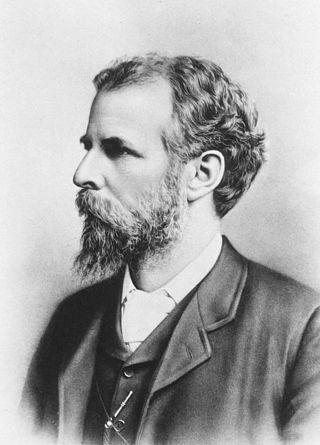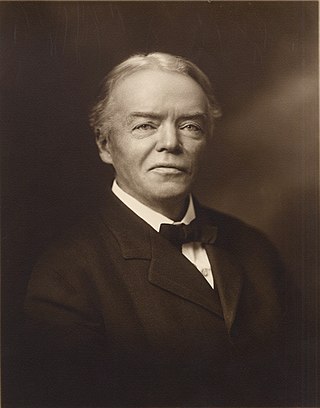External links
- Volumes 1-12 of The Hibbert Journal (electronic scans of first 36 issues)
The Hibbert Journal was a large, quarterly magazine in softback book format, issued since 1902 by the Hibbert Trust, best described by its subtitle: A Quarterly Review of Religion, Theology and Philosophy. In the early years it was published by Williams and Norgate, 14 Henrietta Street, London, with the U.S. Agent being Sherman, French & Co,. 6 Beacon Street, Boston, Mass. The subscription c. 1911 was "Ten Shillings per annum, post free". [1] It ceased publication in 1968. [2]
The Hibbert Journal was, from October 1902 to January 1948, edited by L. P. Jacks. [3] [4] Philosopher Dawes Hicks assisted him as sub-editor from its beginnings until his death in 1941. [5]
A number of eminent people contributed to the production of the Journal; Knights and Lords, professors, philosophers, senior clergy and academics:

Loyalty is a devotion to a country, philosophy, group, or person. Philosophers disagree on what can be an object of loyalty, as some argue that loyalty is strictly interpersonal and only another human being can be the object of loyalty. The definition of loyalty in law and political science is the fidelity of an individual to a nation, either one's nation of birth, or one's declared home nation by oath (naturalization).

James Sully was an English psychologist, philosopher and writer.

Josiah Royce was an American Pragmatist and objective idealist philosopher and the founder of American idealism. His philosophical ideas included his joining of pragmatism and idealism, his philosophy of loyalty, and his defense of absolutism.

William Ernest Hocking was an American idealist philosopher at Harvard University. He continued the work of his philosophical teacher Josiah Royce in revising idealism to integrate and fit into empiricism, naturalism and pragmatism. He said that metaphysics has to make inductions from experience: "That which does not work is not true." His major field of study was the philosophy of religion, but his 22 books included discussions of philosophy and human rights, world politics, freedom of the press, the philosophical psychology of human nature; education; and more. In 1958 he served as president of the Metaphysical Society of America. He led a highly influential study of missions in mainline Protestant churches in 1932. His "Laymen's Inquiry" recommended a greater emphasis on education and social welfare, transfer of power to local groups, less reliance on evangelizing and conversion, and a much more respectful appreciation for local religions.
Arthur John Terence Dibben Wisdom, usually cited as John Wisdom, was a leading British philosopher considered to be an ordinary language philosopher, a philosopher of mind and a metaphysician. He was influenced by G.E. Moore, Ludwig Wittgenstein and Sigmund Freud, and in turn explained and extended their work.

Andrew Seth, FBA, DCL, who changed his name to Andrew Seth Pringle-Pattison in 1898 to fulfill the terms of a bequest, was a Scottish philosopher. His brother was James Seth, also a philosopher.
The Hibbert Lectures are an annual series of non-sectarian lectures on theological issues. They are sponsored by the Hibbert Trust, which was founded in 1847 by the Unitarian Robert Hibbert with a goal to uphold "the unfettered exercise of private judgement in matters of religion.". In recent years the lectures have been broadcast by the BBC.

Oswald Hanfling was an ordinary language philosopher who worked at the UK's Open University from 1970, until his retirement in 1993. At the Open University he, together with Stuart Brown and Godfrey Vesey, pioneered the teaching of philosophy to a higher-education standard via the means of BBC-broadcast radio and television programmes and written course books.

Francis Ellingwood Abbot was an American philosopher and theologian who sought to reconstruct theology in accordance with the scientific method.

Lawrence Pearsall Jacks, abbreviated L. P. Jacks, was an English educator, philosopher, and Unitarian minister who rose to prominence in the period from World War I to World War II.
The Aristotelian Society for the Systematic Study of Philosophy, more generally known as the Aristotelian Society, is a philosophical society in London.
Robert Drew Hicks was a classical scholar, and a fellow of Trinity College, Cambridge.
Christopher John Fardo Williams was a British philosopher. His areas of interest were philosophical logic, on which topic he did most of his original work, and ancient philosophy, as an editor and translator.

John Renford Bambrough was a British philosopher. He was fellow of St John's College, Cambridge from 1950-1999, where he held the positions of Dean (1964–1979) and President (1979–1983).

George Dawes Hicks FBA was a British philosopher who was the first professor of moral philosophy at University College London from 1904 until 1928 and professor emeritus thereafter until his death.
Thomas Edmund Jessop, was a British academic best known for his work on George Berkeley.
John David Mabbott was a British academic who worked as the president of St John's College, Oxford, from 1963 to 1969.

Allen Phillips Griffiths was a Welsh philosopher and snuff enthusiast.
Jennifer Lesley Trusted was a British philosopher of physics, metaphysics, ethics, and the history of science.
Rupert Crawshay-Williams was a music critic, teacher, writer, and philosopher.